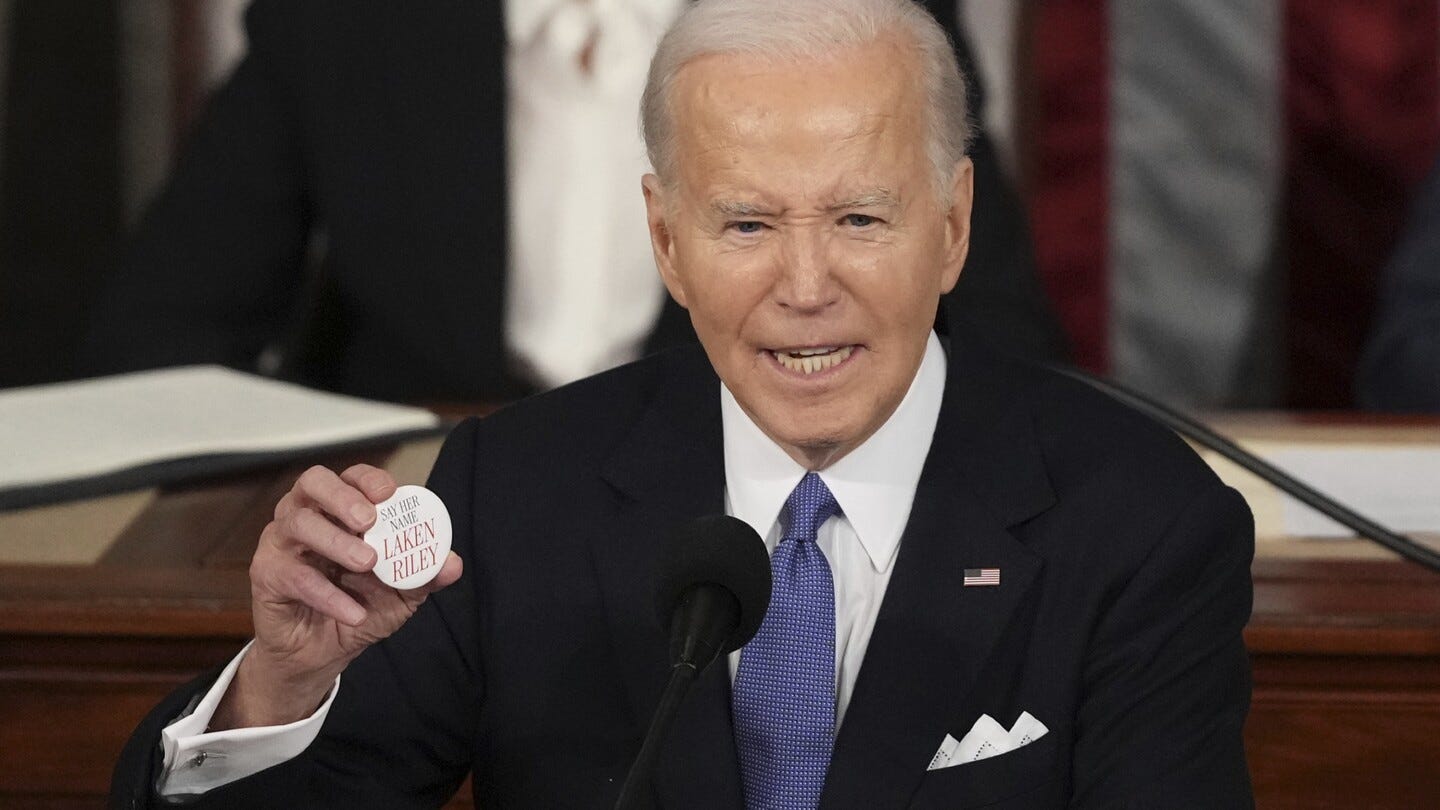House Passes First Bill of 2025: The Laken Riley Act
The bill mandates the detention of undocumented immigrants arrested for certain non-violent crimes, including theft.
The 119th House kicked off the legislative year by passing its first bill, the Laken Riley Act, which mandates the detention of undocumented immigrants arrested for certain non-violent crimes, including theft.
The bill, named after Laken Riley, a 22-year-old nursing student tragically killed by an undocumented immigrant on the University of Georgia campus last year, passed the House with a 264-159 vote. Notably, 48 Democrats joined Republicans in supporting the measure.
The bill is one of a dozen GOP-prioritized pieces of legislation included in the House rules package passed earlier this month, enabling an expedited voting process. A similar version of the bill was approved by the House in March 2024, with 37 Democrats voting in favor. However, it did not advance in the then-Democratic-controlled Senate.
This time around, several prominent Democrats, including Rep. Lucy McBath (D-Ga.), whose district is near the University of Georgia, voted in favor of the bill. Their support underscores the emotional weight of Riley's story and the political pressure surrounding border and immigration policies.
GOP lawmakers highlighted Riley's murder, committed by an undocumented immigrant with prior theft-related arrests, as justification for stronger immigration controls. With Republicans now in control of the Senate, they plan to bring the bill to a vote. While the bill is expected to gain some Democratic support in the Senate, it remains uncertain whether it can reach the 60-vote threshold required to overcome a filibuster.
As immigration remains a polarizing issue, the fate of the Laken Riley Act in the Senate could set the tone for broader debates over border security in the months ahead.
House Democratic leadership officially opposed the bill but did not enforce party discipline in the vote. A memo from House Minority Whip Katherine Clark (D-Mass.) criticized the legislation, arguing that it would increase mandatory detentions without additional funding. The memo further argued the bill would empower conservative state attorneys general to challenge federal immigration policies.





